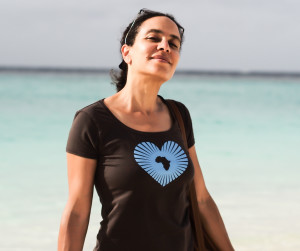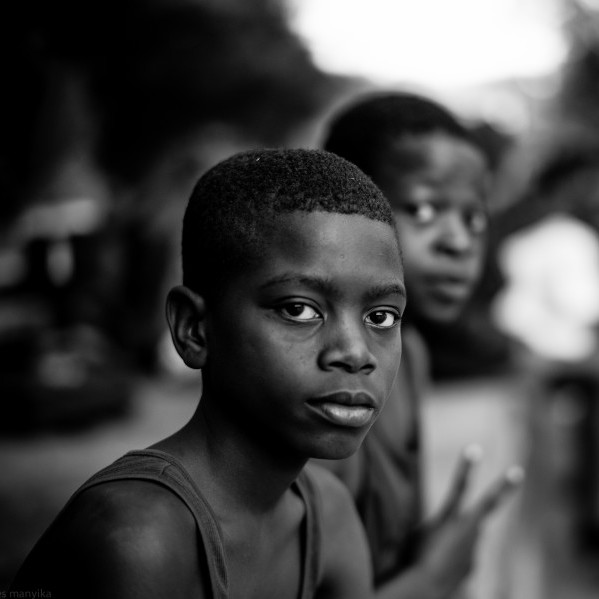When my first novel came out, I, like many debut authors, gave world rights to my publisher. I signed with a British publisher who subsequently sold the African rights to a Nigerian publisher. At the time, I hadn’t realized that African publishers are almost always at the very end of rights negotiations. They must buy, rather than sell, the rights to books, even those that are marketed to the rest of the world as “African” stories. I have long bemoaned the fact that Africa has a history of not owning the rights of production or distribution, but I never fully realized the extent to which this was also the case in publishing. Once I understood this, I decided that the next time round, I would offer world rights to an African publisher first. I saw it as one small way of attempting to address the imbalance of power within the global world of publishing. And now that I’ve completed a second book, I have done just that.
Though my primary impetus for this was ideological, my reasoning was not divorced from what I also feel makes good sense given the economic potential for Africa. Africa is a continent on the rise with a young and growing population capable of being the largest future audience for books. I am betting on my Nigerian publisher because they’ve proven themselves over time to be savvy and diligent custodians of my work whose proficiency and attention to detail put many of their British and U.S. counterparts to shame. This is an important point to make in a world where many people assume that things are always better done in the West than in Africa.
My Nigerian publisher certainly impressed me with how well they looked after my first novel. Indeed, it was thanks to their marketing efforts that my first book was ultimately published in America. And they continue to impress me with their innovative, can-do spirit, and their eye for spotting talent. By way of example, they were the first to publish the now acclaimed author – Teju Cole. They have also actively promoted women’s voices including writers as talented as Lola Shoneyin, Nnedi Okorafor, and Yemisi Aribisala. My Nigerian publisher also put together an online anthology of English language short stories, which they then had translated into a number of African languages. This has never been done before, in spite of Ngugi Wa Thiongo’s perennial urging for more writings in indigenous African languages.
By happy coincidence I completed my second book in the year that my Nigerian publisher decided to open a U.K. branch. Thus my work will be published in Nigeria and shortly thereafter, in the U.K. Moreover, it will be launched along with two other literary titles; and all our stories fall outside the clichéd expectations of African literary narratives. The first is a coming-of-age story centered on a young linguaphile caught up in the contemporary turbulence of Northern Nigeria. The second is a fast-paced crime novel featuring a strong female protagonist in the megacity of Lagos. Finally the third (my book) is set in San Francisco and features a retired Nigerian professor who zips around the city in her beloved sports car until a foot slip precipitates a sudden collapse of all her certainties.
So I am proud to bet on Africa and her cutting-edge publishers to deliver new names and new stories that will further enrich and expand the world’s stories.
***********
All images in the post by James Manyika
About the Author:
 Sarah Ladipo Manyika was raised in Nigeria and has lived in Kenya, France, and England. She holds a Ph.D. from the University of California, Berkeley, and teaches literature at San Francisco State University. Her writing includes essays, academic papers, reviews and short stories. Her second novel, “Like a Mule Bringing Ice Cream to the Sun” is due to be released on April 1st, 2016 and is published by Cassava Republic Press (Abuja-London)
Sarah Ladipo Manyika was raised in Nigeria and has lived in Kenya, France, and England. She holds a Ph.D. from the University of California, Berkeley, and teaches literature at San Francisco State University. Her writing includes essays, academic papers, reviews and short stories. Her second novel, “Like a Mule Bringing Ice Cream to the Sun” is due to be released on April 1st, 2016 and is published by Cassava Republic Press (Abuja-London)









Victor Chinoo May 19, 2016 02:40
It is always refreshing to see Africans not looking for shortcuts, instead working hard with candor and sheer creativity to excel. The west will never offer us anything, be it in publishing, science, education or engineering, we have to take it through hard work and persistence!!! Good stuff. Keep it up.